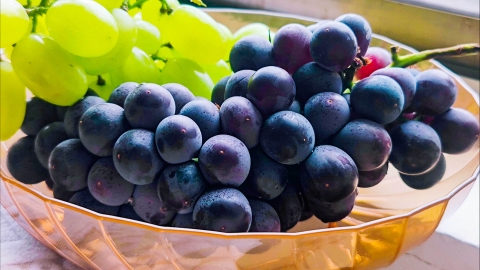Can lemons and grapes be eaten together?
Generally speaking, lemons and grapes can be consumed together, but it is important to control the intake. Detailed analysis is as follows:

Lemons are rich in nutrients such as vitamin C, citric acid, flavonoids, potassium, and calcium. They can enhance immunity, promote collagen synthesis, inhibit melanin production, and to some extent, prevent kidney stones by increasing gastric acid secretion through citric acid. Grapes contain nutrients such as glucose, fructose, B-complex vitamins, vitamin C, vitamin K, potassium, magnesium, anthocyanins, and resveratrol. Glucose and fructose can rapidly supply energy to the body, while anthocyanins and resveratrol act as potent antioxidants that remove free radicals in the body, delay aging, and reduce the risk of cardiovascular diseases.
When consumed together, the nutrients in lemons and grapes can complement and synergize with each other. The antioxidant substances such as vitamin C in both fruits work together to enhance the body's antioxidant capacity and protect cells from free radical damage. Citric acid in lemons promotes gastric acid secretion, aiding in the digestion and absorption of nutrients in grapes. Minerals like potassium work together to better maintain heart health and stabilize blood pressure. However, it is important to consume them in moderation, as excessive intake may irritate the gastric mucosa, causing discomfort such as stomach pain and acid reflux.
Consuming lemons and grapes together is safe for most people, but caution should be exercised if there are specific health conditions or if taking certain medications. In any case, a balanced diet and diverse food choices are always recommended. If you have any concerns, it is advisable to consult a nutritionist or doctor for personalized advice.






